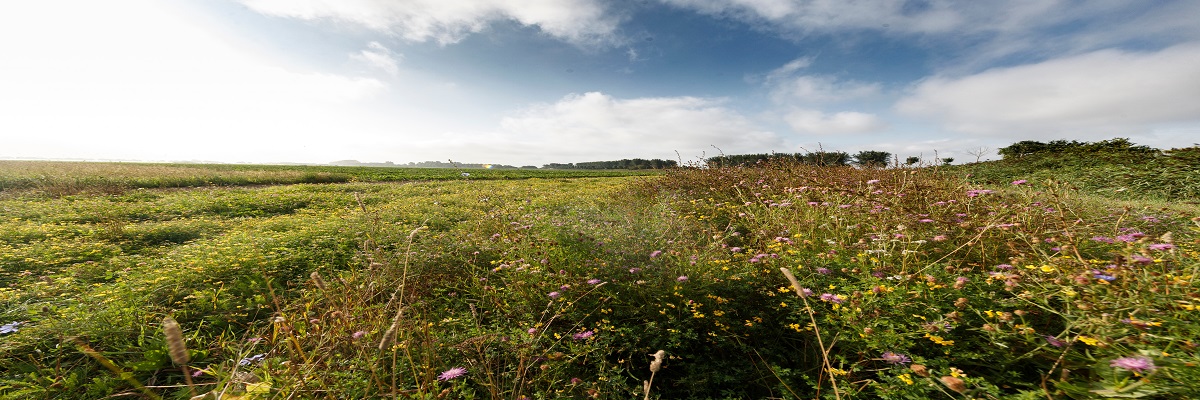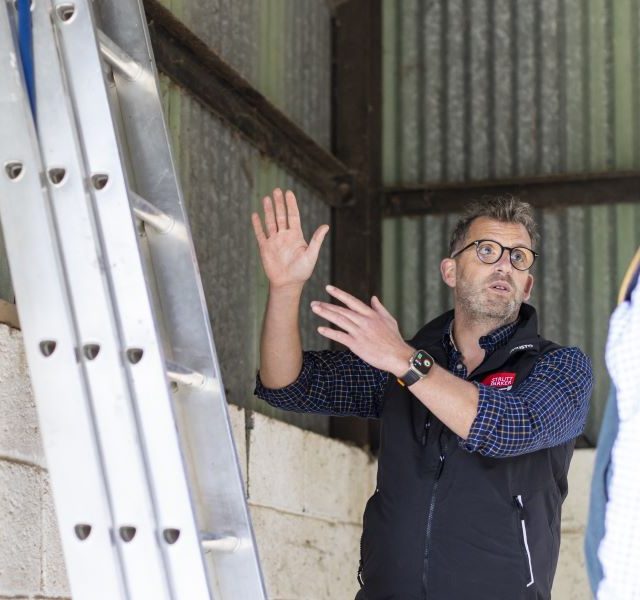Land Business Update | Week Commencing 4 August 2025
Farming & food
Is your farm turning a truly sustainable profit? (UK)
Farming is facing a range of significant challenges, including the ending of Basic Payments, changes to inheritance tax and climate change. These pressures are sparking urgent conversations – both in the industry and in Government – about what needs to change to support farm profitability. But when we talk about farm profitability, one crucial question often gets glossed over: how much profit is enough?
Our farming team looked at it closely in a recent project for the York and North Yorkshire Combined Authority. The aim of this work was to better understand the financial position of farming businesses across the region. The headline finding was that half of farms are not hitting ‘economically sustainable’ profit levels, which we set at around £250 / hectare as the minimum required to support the owners of a farm and allow them to reinvest in the business; this is around £34,500 for a ‘typical’ farm, which is equivalent to the UK’s median household income, and, coincidentally, is similar to the level of historical Basic Payments.
What is ‘enough’ is of course different for all farms. If this is of interest, our Rural team offers tailored farm business reviews to assist clarify your business and personal goals, benchmark your performance and explore practical, workable options for the future. Please contact Paul Dennison if you would like to discuss business and personal goals or Jason Beedell if you would like to discuss our research on farm profitability.
Latest on policy and farming roadmap from Defra (England)
- ‘Reset’ SFI – Defra is still working on the design of the scheme, which will not restart until 2026. The revised Environmental Improvement Plan (EIP) will be published after the summer and the ‘reset’ SFI will be targeted at delivering it.
- Countryside Stewardship Higher Tier – the new scheme will open for applications in September 2025 but only to farmers who have completed the pre-application process. Defra has not said when the scheme will it open more widely but this is important, especially given the unavailability of SFI. Defra’s long-term aim remains to double the number of Higher Tier agreements. There are no plans to extend or roll-over Mid-Tier agreements when they end.
- Capital Grants – this has closed to applications on 1 August. Remember that funding is not guaranteed even if an application has been submitted and is eligible.
- The land use framework will be published in late summer / early autumn. Its aim is to increase productivity to maintain food production but also free up land for nature.
- The farming roadmap will be published in the autumn, after the Batters farm profitability review.
Total Income From Farming (TIFF) in England increases by 23% in 2024 (England)
TIFF is an official measure of the total profit from farming businesses on a calendar year basis. We reported on the TIFF figures for the UK in our 9th June edition. The figures just published for England show, unsurprisingly, similar patterns:
- TIFF increased to £5.3bn, up £1.0bn compared with 2023.
- The main reason for the change is a £0.9bn reduction in the cost of inputs, which is mainly from lower fertiliser prices.
- The value of farm outputs rose £0.1bn, entirely due to a higher value of livestock outputs (+£0.7bn).
- It was a much tougher year for crop production, with the value of output falling by 6%.
UK agricultural tractor registrations drop to lowest level for 27 years (UK)
In a sign of the state of the farming sector, there were 4,869 tractor registrations in the first half of 2025, which is 17% lower than in the same period last year and well below the five-year average (2019 – 23), according to data from the Agricultural Engineers Association trade body. The biggest fall in demand, of over 30%, was for tractors over 240 horsepower. Regionally, the Midlands and North of England saw the largest reductions in purchases and southern England the smallest fall (but this may be a return to more typical levels after a large increase in purchases in the south in 2024). Sales in Scotland were about 15% below last year’s levels.
Natural capital & environment
Report calls for strategic shift toward off-site BNG (England)
Strutt & Parker is one of the authors of a new report that has identified opportunities to strengthen BNG to deliver even greater benefits for nature, developers and communities. The report, The Comparative Value of On-site vs Off-site Biodiversity Net Gain for Restoring Nature, finds that the current emphasis on delivering BNG within development boundaries is severely limiting its potential. The vast majority of delivery is currently happening within development boundaries – despite mounting evidence that this approach is ecologically and economically suboptimal. The report identifies that a strategic shift toward off-site BNG would unlock greater biodiversity gains, reduce costs for developers, and support the UK’s ambitions to lead in nature markets and green finance. The research, led by David Hill, former Deputy Chair of Natural England and Founder of Environment Bank, includes contributions from Jason Beedell, Rural Research Director for Strutt & Parker, and Cornerstone Barristers, Bellway Homes and Rural Solutions. Please contact Jason if you would like to discuss the report or BNG in general.
Dry weather pushes up UK food inflation (UK)
The British Retail Consortium has said that the hot, dry weather has reduced the yields of fruit and vegetables, and so pushed up prices. The BRC says retailers have warned of price rises for consumers, due to higher employment costs, geopolitical tensions affecting supply chains and climate change. The UK imports 65% of the fresh produce it consumes.
One in four Brits has ‘no understanding’ of net-zero, survey finds (UK)
Most Brits are struggling to engage with plans to decarbonise energy and infrastructure, because they understand neither the climate science behind net-zero nor the likely impacts on their daily lives. S&P comment: Arnold Schwarzenegger hates the label ‘net zero’, saying that it means nothing to most people. He came up with an alternative, that we really like – TERMINATE POLLUTION.
Rural economy & property
Long-term monitoring of ancient woodland reveals increases in mortality of young trees (UK)
The research, led by the University of Birmingham, found that the sapling mortality rate increased by 90%,from 16% of saplings a year on average dying before 2000, increasing to 31% in 2022. The research is based on rare long-term monitoring of the same areas of ancient woodland since 1959, which allowed researchers to monitor changes over six decades. Its findings have sparked concern about the future resilience of Britain’s forests. There is also a rise in mortality in the largest trees in some areas, rising from 0.5% to 0.8% a year.






